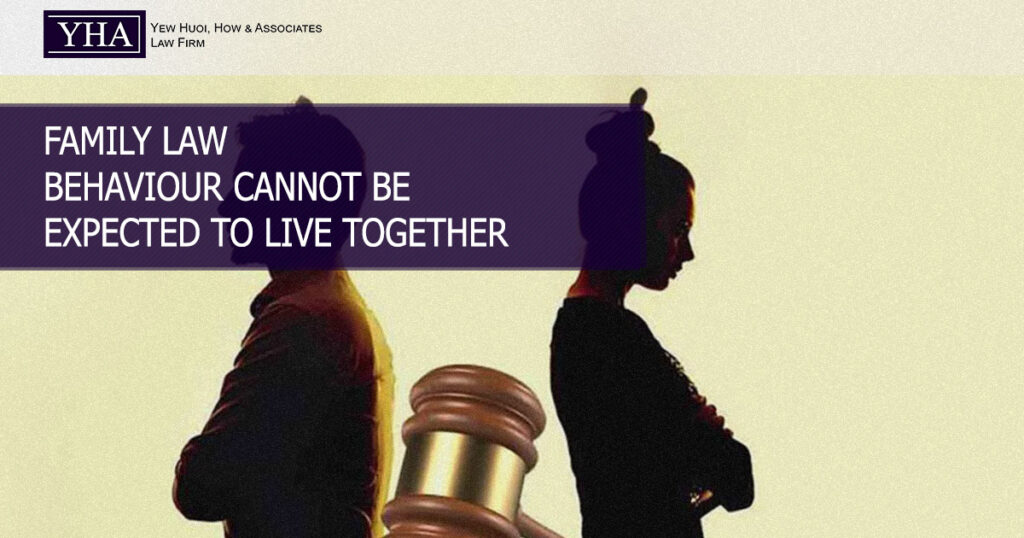Divorce can be petitioned on the ground marriage has irretrievably broken down. In deciding whether there is breakdown, the court will consider issues such as adultery, behaviour of the parties, desertion and living apart for more than 2 years.
How do court consider “behaviour which cannot be reasonably be expected to live together”?
- Whether or not the behaviour is such that the husband and wife cannot be reasonably be expected to live together is for the judge to decide.
- The judge will consider the effect of the behaviour of the couple.
- It is not enough to say the wife is tired of the husband or fed up with him. The behaviour must be so unreasonable that it cannot be expected that the wife can continue to live with the husband.
- The court will consider the character, personality, disposition and behaviour of the petitioner – The person who claims I cannot live together with him/her. Can this petitioner, with this personality and behaviour reasonably be expected to live with the respondent? This is the question the court will answer after hearing the parties in open court.
- The court will look at the personalities and characters of the parties. The court might not agree with the truth of the allegations of the Petitioners such as he/her ill treated me some way or another. But if the acrimony is palpable, the judge may rule the marriage has irretrievably broken down.
Case in point : CSM v TCC [2023] 9 MLJ 116

